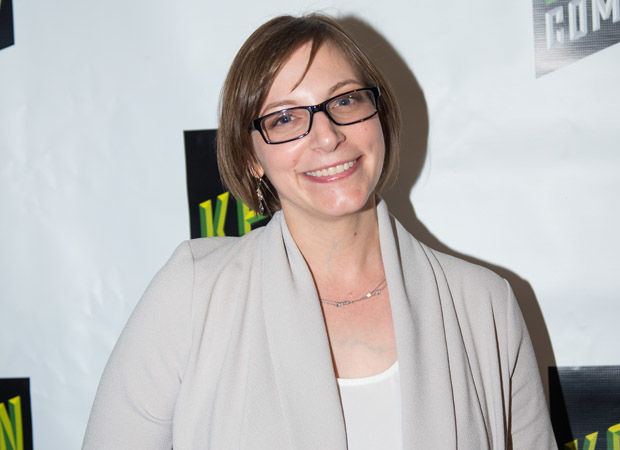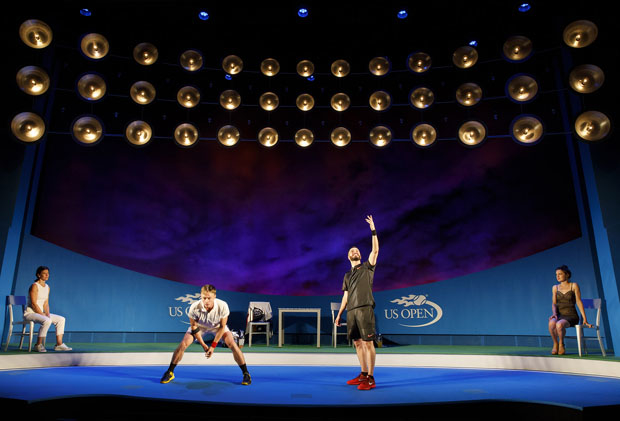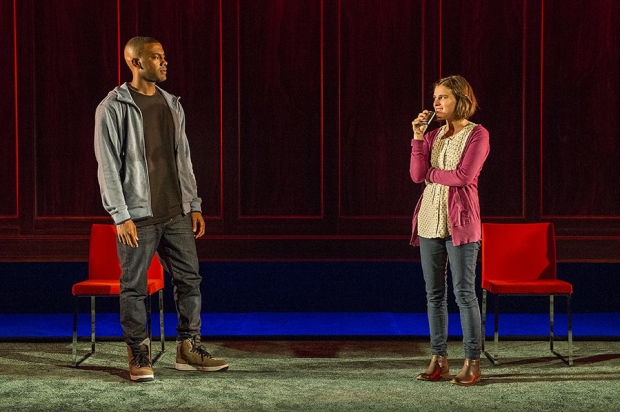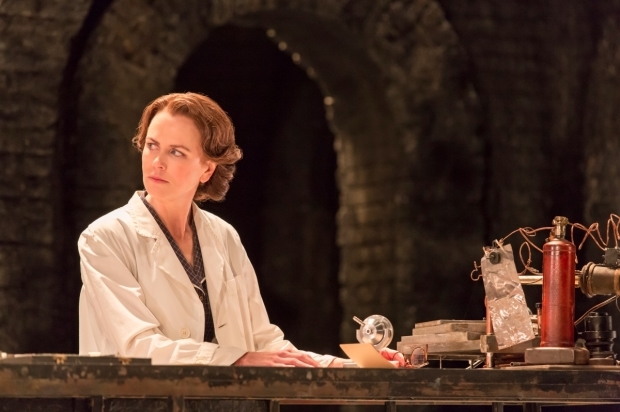How Anna Ziegler Went From Poet to Playwright
Anna Ziegler's work defies classification. You can see it in the two plays she currently has running in New York: One looks at a pair of tennis rivals as they approach the semifinals of the US Open, another tackles the topic of sexual consent on a college campus. But The Last Match, running at Roundabout Theatre Company's Laura Pels Theatre, and Actually, at Manhattan Theatre Club's New York City Center home, have one thing in common: both plays explore weighty issues through the lens of deeply complex, incredibly human characters.
While opening one play and rehearsing another might seem overwhelming, it's not Ziegler's first time pulling double duty like that. In 2015 her play A Delicate Ship ran off-Broadway while her drama Photograph 51 premiered on London's West End with Nicole Kidman in the leading role.
"It's definitely crazy," she says with a laugh. "On one hand, it probably makes me a little insane, but on the other, it means I can always turn to something else in my mind if I need a break from one or the other."

(© David Gordon)
This interview has been condensed and edited for clarity.
Did you always want to be a playwright?
No. I always wanted to be a writer, but as a kid and young adult, I was a very dedicated poet. I went to England and did a master's in poetry, and then I came back to New York and started writing plays.
How did you transition from poet to playwright?
When I was a senior in college, I applied for Arthur Kopit's playwriting workshop at Yale. You had to apply with a scene, but I had never written a scene, so I applied with a poem. He saw something dramatic enough and admitted me. He was pretty instrumental in my starting to write plays. He then taught in the graduate program at NYU. He first brought me into the Lark Playwrights Workshop, and then suggested that I apply to that graduate program [at NYU].
How did The Last Match and Actually come about? They're two very different plays.
I wanted to write about tennis. I had been a player and I was a big fan. Around when I had my first child, Andy Roddick retired and gave a very moving speech on court at the US Open. That's where the seed of The Last Match started to grow. I had these characters in my head, for a long time. I had been looking for a way in, and it was this notion of putting a huge part of your life behind you at a fairly young age that got me thinking about tennis as a microcosm for everything. Particular to this play is this idea of, does one person want it more than the other person, does that matter, and how much do our psychologies impact our skills on the court?

(© Joan Marcus)
Actually is a little easier to explain. My husband works at NYU as a lawyer. For the last couple of years, I have been hearing about sexual misconduct cases at home. What really struck me were the ones that haunted him, that felt really murky and had major repercussions. What I took from that was, I guess, the beginnings of this idea. Of exploring how men and women are raised in our culture. It's very relevant, sadly. And the education department has just changed some of the guidance so the resonance of the play may well be different than it was in LA in the spring, and Williamstown in the summer. It feels like a living, breathing play.
A lot of your plays, Boy and Actually, for example, deal with characters that face major ethical dilemmas. Generally, do you look at that as a common theme in your work?
Some of my work has intersected with these ethical dilemmas because there is a lot of drama in difficult choices. But I don’t think my way in ever starts with the ethical dilemma. It's human beings at the heart of something that’s going to change their lives. I am drawn to things that are not black and white, where there can be discussion afterwards about whether people did the right thing, and whether or not it makes them a bad person if they did the wrong thing. Not every play, though. The Last Match does not have many ethical dilemmas in it, I don't think. [Laughs]. I think that question of wanting is really central to the play. Can we ever satisfy our desire for more and better things? That’s actually a theme that runs through my plays in other ways.

(© Daniel Rader)
How so?
Photograph 51 could be seen as an exploration of different kinds of wanting — desire for personal glory vs. the desire to make the world a better place. The desire to be single-minded vs. the desire to have it all. I think Actually is to a large degree investigating what it means for an individual to want opposing things at the same time, and the discomfort and repercussions that arise as a result of boys and girls having been raised in our society to embody these complicated, confusing, competing desires.
There's long been a rumor about a Broadway Photograph 51 transfer. Is that still in the cards? Is there anything else you're currently working on?
I would say it's very much up in the air. I have a couple of commissions that I'm working on for the Geffen Playhouse and Second Stage. One that I'm writing for Seattle Rep is an autobiographical play that's about my son being born at the same time as my grandfather's health looked to be declining a bit. It's a little scary, but you have to write the things that scare you.

(© Johan Persson)












